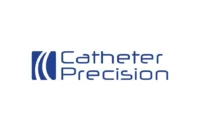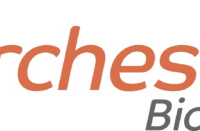Combined company has full range of capabilities required to advance bold science for rare diseases in immunology and cardiopulmonology
CARY, N.C., Dec. 06, 2022 (GLOBE NEWSWIRE) — Enzyvant Therapeutics, Inc. and Altavant Sciences, Inc., both wholly owned subsidiaries of Sumitovant Biopharma Ltd., today announced a merger to form a biopharmaceutical company focused on delivering life-altering therapies for people with rare diseases. The combined company retains the name Enzyvant and is equipped with a full range of capabilities spanning non-clinical and clinical development and commercialization and is in the process of developing in-house manufacturing.
Dr. Bill Symonds, current chief executive officer of both Enzyvant and Altavant, will lead the merged company. “Together, our combined team has the proven expertise to take a product from early clinical development through commercialization, and the passion and focus to drive accelerated development of urgently needed rare disease medicines in immunology and cardiopulmonology,” said Dr. Symonds. “Patients and families facing very serious and difficult-to-treat rare conditions are the inspiration for our work and vital partners in moving our programs forward.”
Enzyvant received U.S. FDA approval of its first commercial product, RETHYMIC® (allogeneic processed thymus tissue-agdc), a one-time regenerative tissue-based therapy for immune reconstitution in pediatric patients with congenital athymia, in October 2021. The company continues to advance promising therapeutic candidates targeting some of the most challenging conditions impacting the rare disease community. In its clinical trials, Enzyvant is evaluating an investigational product, rodatristat ethyl, which is designed to address a root cause of pulmonary arterial hypertension rather than only managing symptoms.
“There is an immense human need for rare disease therapies, but innovation in this field is complex. Enzyvant has a proven track record of bringing unique expertise to tackle some of the greatest unmet needs in the space,” said Myrtle Potter, chief executive officer of Sumitovant. “We believe the combined company will be better positioned to deliver breakthroughs in a way that wouldn’t have been possible separately.”
Enzyvant is now headquartered in Cary, N.C. The company is developing an in-house regenerative medicine manufacturing facility in Morrisville, N.C. Expected to be completed in the second half of 2024, the facility will provide the size, flexibility, and processing capability to serve the company’s commercial and clinical research needs for regenerative medicines. The new manufacturing facility is being co-developed by and operated with Sumitomo Pharma, which owns Enzyvant’s immediate parent company, Sumitovant. Enzyvant also will maintain offices in Cambridge, Mass., and Basel, Switzerland.
Financial terms of the deal were not disclosed. For additional information, visit https://enzyvant.com/.
About Enzyvant
Enzyvant is a biopharmaceutical company making life-altering impact for people affected by rare disease, where the communities are small, and the human need is immense. Driven by purpose, we engage with rare disease communities with compassion and commitment, partnering to accelerate the development of transformative medicines they so urgently need. We prioritize collaborative connections with academia, industry, associations, advocacy groups and government, because strong relationships make bold science possible.
A nimble and unique organization, Enzyvant has a full range of capabilities spanning non-clinical and clinical development and commercialization and is developing in-house manufacturing. Enzyvant has delivered a first-of-its-kind FDA approval in regenerative medicine and promising advances against some of the greatest challenges in immunology and cardiopulmonology. Enzyvant is part of Sumitovant, wholly owned by Sumitomo Pharma. For more information about Enzyvant and our programs, visit www.Enzyvant.com.
About Sumitovant Biopharma Ltd.
Sumitovant is a technology-driven biopharmaceutical company accelerating development and commercialization of new potential therapies for patients with rare conditions and other diseases. Through our proprietary computing and data platforms, scientific expertise and diverse company portfolio, Sumitovant has supported development of multiple FDA-approved products and a robust pipeline of early- through late-stage investigational assets addressing unmet patient needs in pediatrics, urology, oncology, women’s health, specialty respiratory and infectious diseases. Sumitovant is a wholly owned subsidiary of Sumitomo Pharma. Please visit our website www.sumitovant.com for more information on Sumitovant and our portfolio.
About Sumitomo Pharma Co., Ltd.
Sumitomo Pharma is among the top-ten listed pharmaceutical companies in Japan, operating globally in major pharmaceutical markets, including Japan, the U.S., China, and other Asian countries with about 7,000 employees worldwide. Sumitomo Pharma defines its corporate mission as “To broadly contribute to society through value creation based on innovative research and development activities for the betterment of healthcare and fuller lives of people worldwide.” Additional information about Sumitomo Pharma is available through its corporate website at https://www.sumitomo-pharma.com.
About RETHYMIC®
RETHYMIC® (allogeneic processed thymus tissue-agdc) is a novel one-time tissue-based regenerative therapy used for immune reconstitution in pediatric patients with congenital athymia. RETHYMIC is engineered human thymus tissue designed to regenerate the thymic function children with congenital athymia are missing and does not require donor-recipient matching. RETHYMIC has been studied across 10 clinical trials for more than 25 years and was granted multiple U.S. Food and Drug Administration (FDA) designations including Regenerative Medicine Advanced Therapy, Breakthrough Therapy, Rare Pediatric Disease, and Orphan Drug. It also has been granted the Orphan Drug designation and the Advanced Therapy Medicinal Product designation by the European Medicines Agency (EMA). RETHYMIC is the first and only treatment approved by the FDA for the immune reconstitution in pediatric patients with congenital athymia.
About Rodatristat Ethyl
Rodatristat ethyl, a tryptophan hydroxylase (TPH) inhibitor, is an investigational medicine currently being evaluated in a Phase 2 study in patients with pulmonary arterial hypertension (PAH). The U.S. FDA and EMA granted rodatristat ethyl orphan drug designation for PAH.
Please see Full Prescribing Information for RETHYMIC.
Indication and Important Safety Information
Indication
RETHYMIC® (allogeneic processed thymus tissue–agdc) is indicated for immune reconstitution in pediatric patients with congenital athymia.
Limitations of Use:
RETHYMIC is not indicated for the treatment of patients with severe combined immunodeficiency (SCID).
Important Safety Information
Immune reconstitution sufficient to protect from infection is unlikely to develop prior to 6-12 months after treatment with RETHYMIC. Given the immunocompromised condition of athymic patients, follow infection control measures until the development of thymic function is established as measured through flow cytometry. Monitor patients closely for signs of infection including fever. If a fever develops, assess the patient by blood and other cultures and treat with antimicrobials as clinically indicated. Patients should be maintained on immunoglobulin replacement therapy until specified criteria are met, and two months after stopping, IgG trough level should be checked. Prior to and after treatment with RETHYMIC, patients should be maintained on Pneumocystis jiroveci pneumonia prophylaxis until specified criteria are met.
RETHYMIC may cause or exacerbate pre-existing graft versus host disease (GVHD). Monitor and treat patients at risk for the development of GVHD. Risk factors for GVHD include atypical complete DiGeorge anomaly phenotype, prior hematopoietic cell transplantation (HCT) and maternal engraftment. GVHD may manifest as fever, rash, lymphadenopathy, elevated bilirubin and liver enzymes, enteritis, and/or diarrhea.
Autoimmune-related adverse events occurred in patients treated with RETHYMIC. These events included: thrombocytopenia, neutropenia, proteinuria, hemolytic anemia, alopecia, hypothyroidism, autoimmune hepatitis, autoimmune arthritis, transverse myelitis, albinism, hyperthyroidism, and ovarian failure. Monitor for the development of autoimmune disorders, including complete blood counts with differential, liver enzymes, serum creatinine, urinalysis, and thyroid function.
Pre-existing renal impairment is a risk factor for death.
In the clinical studies of RETHYMIC, 3 out of 4 patients with pre-existing cytomegalovirus infection died. The benefits/risks of treatment should be considered prior to treating patients with pre-existing CMV infection.
Because of the underlying immune deficiency, patients who receive RETHYMIC may be at risk of developing post-treatment lymphoproliferative disorder. Patients should be monitored for the development of lymphoproliferative disorder.
Transmission of infectious disease may occur because RETHYMIC is derived from human tissue and because product manufacturing includes porcine- and bovine-derived reagents.
Immunizations should not be administered in patients who have received RETHYMIC until immune-function criteria have been met.
All patients should be screened for anti-HLA antibodies prior to receiving RETHYMIC. Patients testing positive for anti-HLA antibodies should receive RETHYMIC from a donor who does not express those HLA alleles. HLA matching is required in patients who have received a prior HCT or a solid organ transplant. Patients who have received a prior HCT are at increased risk of developing GVHD after RETHYMIC if the HCT donor did not fully match the recipient.
Of the 105 patients in clinical studies, 29 patients died, including 23 deaths in the first year (< 365 days) after implantation.
The most common (>10%) adverse events related to RETHYMIC included: hypertension, cytokine release syndrome, rash, hypomagnesemia, renal impairment/failure, thrombocytopenia, and graft versus host disease.
To report suspected adverse reactions, please contact the FDA at 1-800-FDA-1088 or www.fda.gov/safety/medwatch
Media Contacts:
Sarah Kossek
Syneos Health
enzyvantmedia@syneoshealth.com
Maya Frutiger
Sumitovant
Head of Corporate Communications
maya.frutiger@sumitovant.com






